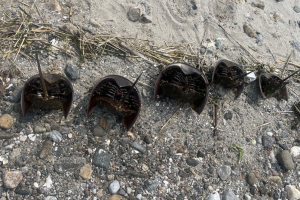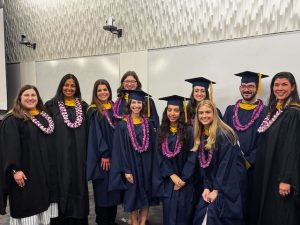
Horseshoe crabs hold the world record for surviving the longest without any significant changes to their body structure. Virtually unchanged for over 450 million years, they’ve earned the nickname “living fossils.” Another reason why this species remains so captivating lies in its molecular makeup – horseshoe crab blood is an almost iridescent blue and has been used as a key ingredient in developing vaccines and medicines for over 50 years.
To keep animal research alive while also preserving the crabs’ population, Castellano and Neitzey collaborated with Sacred Heart University’s Project Limulus, a long-running ecological and conservation study of horseshoe crabs on the Long Island Sound, to help tag horseshoe crabs. Project Limulus Horseshoe Crab Tagging allows researchers to keep track of the populations in New York, Connecticut, Rhode Island, and Massachusetts and compare numbers annually. It also allows scientists who collect samples from the crabs to keep track of their well-being.
This year’s event was held on June 13th and included residents of Sherwood Island State Park in Westport, and volunteers from the UConn Genome Ambassadors Program, with as many as 40 individuals who signed up with Castellano.
Click here to read full UConn Today article.



